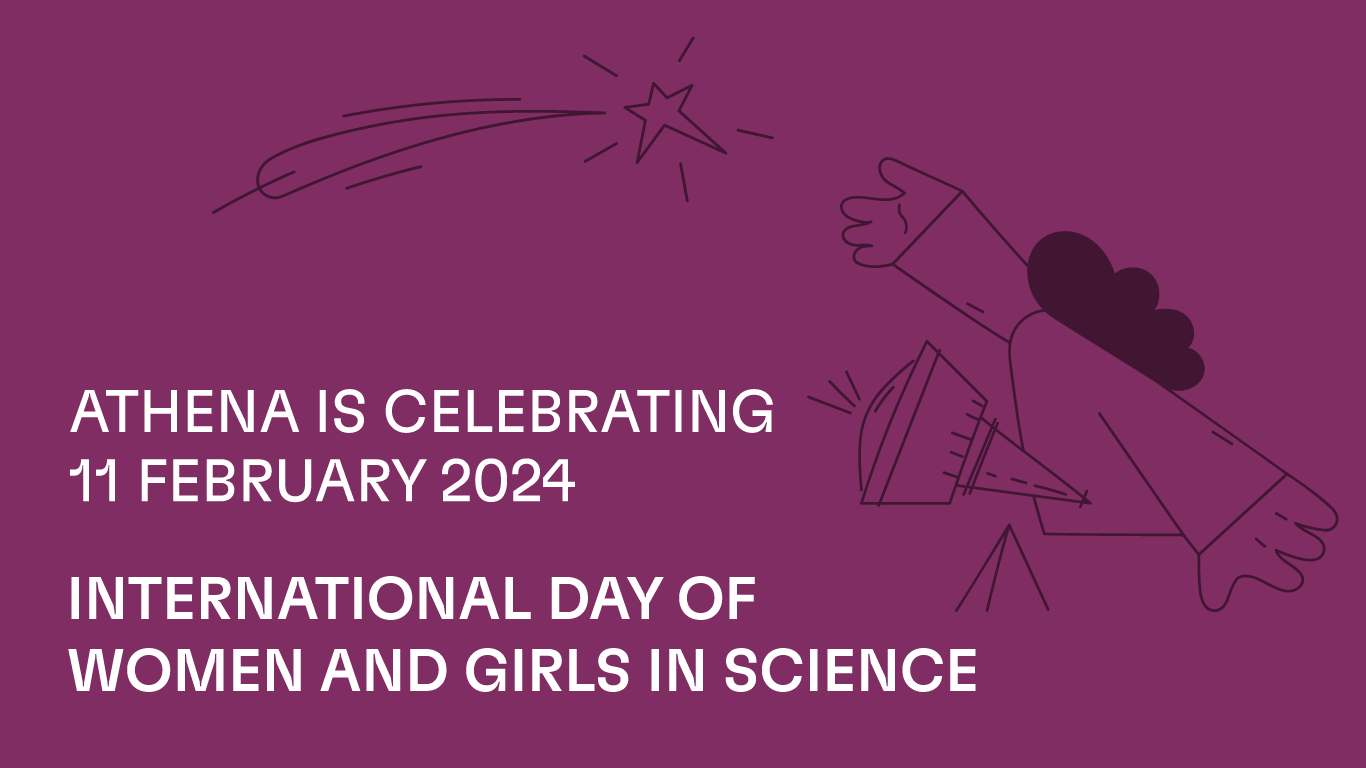On the occasion of the International Day of Women and Girls in Science (February 11), ATHENA is reflecting on the progress made and the challenges that still lie ahead in achieving gender equality in science.
On this occasion, the United Nations highlighted the broader importance of women’s participation in STEM fields for tackling global challenges outlined in the Agenda for Sustainable Development. From improving health to combating climate change, diverse perspectives are essential. Women and girls bring unique insights, talent, and creativity to the table, enriching the research landscape and driving innovation.
Despite the recognition of STEM’s significance for national economies, gender equality in these fields remains elusive across most countries. This gap underscores the urgency of concerted efforts to remove barriers and create inclusive environments where women can thrive in science, technology, engineering, and mathematics.
Initiatives like the last ATHENA talk by Mar Fernandez Cendon on ‘The illusion of university equality: an approach to the gender gaps in academia’ underscores the need for critical discussions and actions to promote equality and diversity. In the talk, various gender gaps in academia and broader were presented, followed by a discussion on how to tackle them. Several concrete actions that universities (and other organisations) can take were presented.
As we celebrate the International Day of Women and Girls in Science, let’s reaffirm our commitment to fostering gender equality in academia and beyond. It’s not only a matter of fairness but also essential for unleashing the full potential of talent and addressing the complex challenges facing our world.
ATHENA celebrates International Day of Women and Girls in Science


On the occasion of the International Day of Women and Girls in Science (February 11), ATHENA is reflecting on the progress made and the challenges that still lie ahead in achieving gender equality in science.
On this occasion, the United Nations highlighted the broader importance of women’s participation in STEM fields for tackling global challenges outlined in the Agenda for Sustainable Development. From improving health to combating climate change, diverse perspectives are essential. Women and girls bring unique insights, talent, and creativity to the table, enriching the research landscape and driving innovation.
Despite the recognition of STEM’s significance for national economies, gender equality in these fields remains elusive across most countries. This gap underscores the urgency of concerted efforts to remove barriers and create inclusive environments where women can thrive in science, technology, engineering, and mathematics.
Initiatives like the last ATHENA talk by Mar Fernandez Cendon on ‘The illusion of university equality: an approach to the gender gaps in academia’ underscores the need for critical discussions and actions to promote equality and diversity. In the talk, various gender gaps in academia and broader were presented, followed by a discussion on how to tackle them. Several concrete actions that universities (and other organisations) can take were presented.
As we celebrate the International Day of Women and Girls in Science, let’s reaffirm our commitment to fostering gender equality in academia and beyond. It’s not only a matter of fairness but also essential for unleashing the full potential of talent and addressing the complex challenges facing our world.
